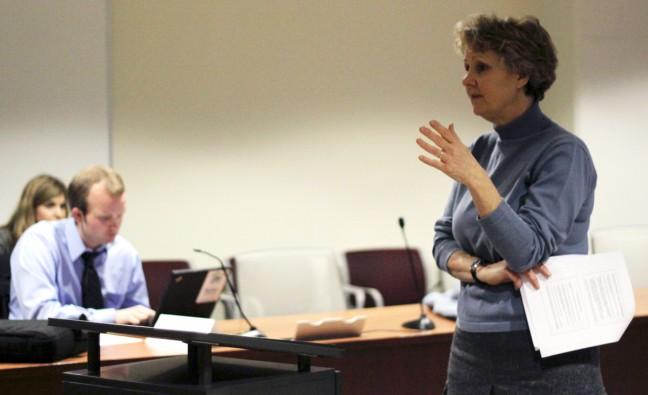Twelve years ago, then-Wisconsin Gov. Scott Walker signed into law Wisconsin Act 10, or the “Budget Repair Bill,” gutting teacher pay and collective bargaining rights. Despite the widescale cries and protests of teachers and other public sector employees, the bill was hailed as a hard-fought victory by Wisconsin Republican lawmakers, who passed it to address a projected $3.6 billion budget deficit.
But with a passing look at the problems facing Madison Metropolitan School District and many other schools today, it becomes clear there is a high social cost to this so-called “victory.”
In recent weeks, MMSD has been experiencing a worsening shortage of paraprofessionals — not a new shortage but a worsening one. Paraprofessionals — the staff members assigned to students with specific needs such as language barriers and learning disorders — have been unable to find substitutes more than 60% of the time in the 2022-2023 academic year. Fill-in rates for general teachers are similarly low, checking in at around 54% of the time. Given the school system’s reliance on its teachers, this shortage is a dire one.
“There’s so many kids that aren’t getting the services they’re supposed to be getting because the people who should be providing those services, whose job it is to provide those services, have to be doing something else,” an anonymous teacher stated in an interview with The Cap Times.
When fully trained core-subject substitute teachers are unavailable, paraprofessionals are often tapped as emergency substitutes.
These teaching shortages are an extension of both Act 10 itself and the fearful obsession over government debt that was in part the cause of it. Before Act 10 can be criticized in full, it must first be acknowledged that it does have its benefits.
Act 10 did reduce government spending, and Wisconsin’s budget has seen an unexpected surplus in recent years in some part as a result. Conservative outlets have measured the savings to be as high as $13.9 billion. The question here is not whether the act was effective for the budget, but rather if the long-term social costs were worth the resulting budget surplus.
To begin, it is crucial to take a look at the budget surplus Wisconsin currently has. Many credit the conservative fiscal policy of the Walker years, but in reality, the state was boosted just as much by the $19.9 billion in federal COVID-19 aid shouldering state expenses. While surpluses are widely viewed as positive and deficits negative, the existence of a projected budget deficit is not an excuse for attacking public institutions.
Budget deficits are often a part of government recession control, as borrowed capital is often spent to support the private sector and boost economic involvement, which was an extremely large part of the government’s response to the 2008 financial crisis. Act 10, with all its attacks on public servants, was essentially a reaction to standard government spending policy.
“I think teachers then, and the ones who were there at Act 10 and still in the profession, still feel very vulnerable about what happened,” Executive Director of the Wisconsin Association of School Personnel Administrators Vickie Adkins said to The Cap Times.
Why wouldn’t they? Teachers, already criminally underpaid, had their salaries reduced to where, in the 2015-2016 school year, they were paid less than before Act 10 was passed. Furthermore, their retirement packages were devalued heavily and their union power was capped.
With this in mind, it is misleading to say the teacher shortage in Wisconsin is merely part of a national issue. Wisconsin is fifth in the nation when it comes to teaching vacancies, only losing to Georgia, Florida, Alabama and Mississippi. Adjusting for population moves us to third. This is not a coincidence. In the immediate fallout of Act 10, the number of teachers leaving the profession in Wisconsin bloomed from 6.4% to nearly 10.5%.
The social cost of driving teachers away from the profession is — as always — shifted onto the most forgotten members of society. The teaching shortage eats into the availability of the support staff that students with special needs rely on. By passing Act 10, we put a small dent in our budget deficit and put a massive issue in our education system. Other policies, such as progressive taxing or general tax hikes, would be better for fixing a budget deficit as opposed to gutting critical public institutions.
If Wisconsin wants to set this right, it has to start with using our newfound budget surplus to return school budgets back to more reasonable levels, increasing teacher pay and bringing back job benefits. Just this year Gov. Tony Evers proposed a $2.6 billion increase to education funding, which will hopefully put us on the path to moving away from Wisconsin’s school staffing crisis.
Jeremiah Frodl (jdfrodl@badgerherald.com) is a senior studying communication.


